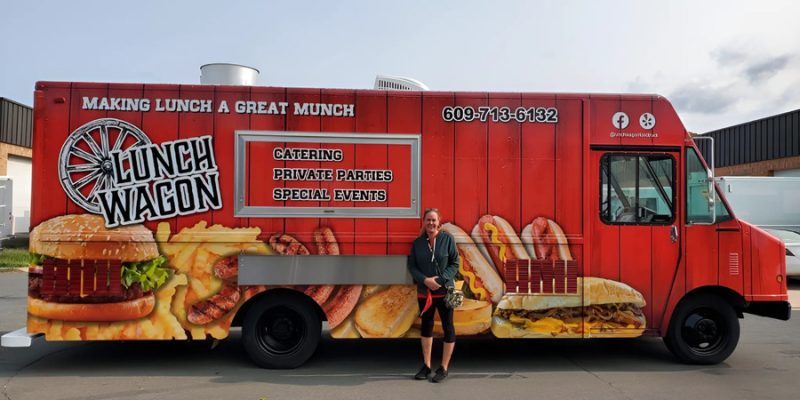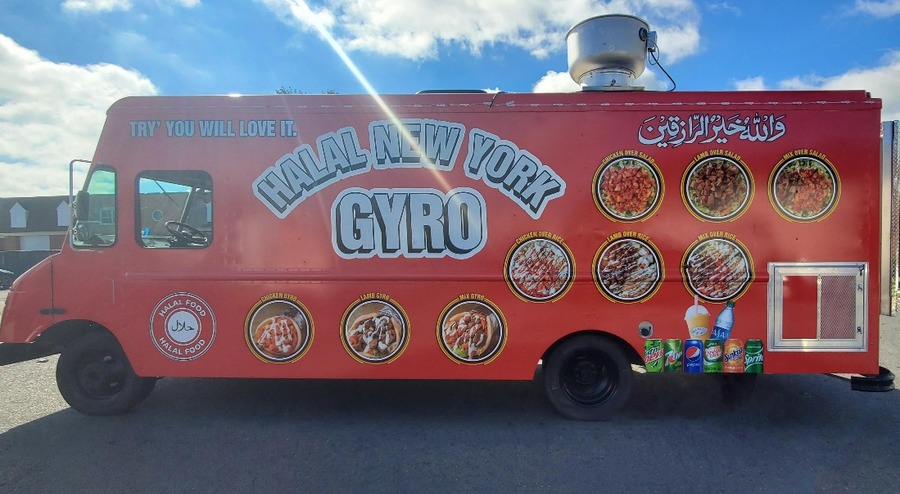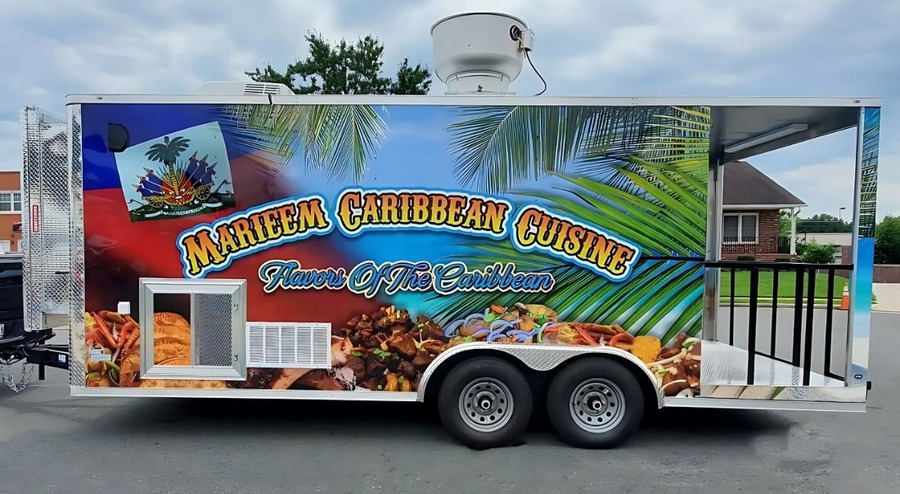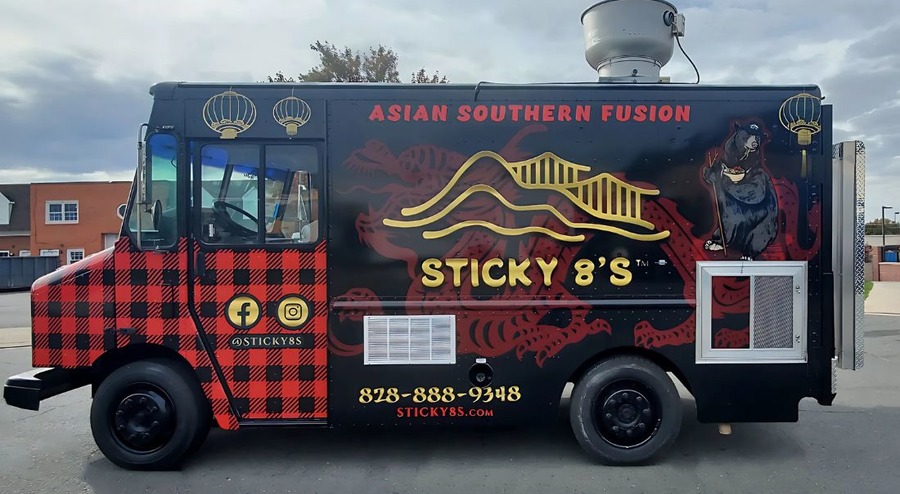Starting a food truck is one of the most approachable ways to enter the food service industry. It combines lower startup costs with the freedom to bring your food directly to the customers who want it most. Beyond convenience, food trucks allow owners to develop a distinct brand, create a loyal following, and operate with flexibility that traditional restaurants often cannot match.
Across the country, the most successful food trucks show that profitability is about more than serving meals. The businesses that rise to the top are the ones that combine quality, strong branding, and efficient design into a model that scales. These traits separate trucks that fade away from those that grow into recognized names.
What makes these food trucks so successful, and how can you replicate their achievements? At Elhaj Custom Food Trucks, we specialize in designing custom food trucks and food trailers tailored to your business needs. Let’s look at the traits that define the most successful food trucks today.
What Defines a Successful Food Truck?
Several common traits stand out when studying the most profitable food trucks:
- Focused menus: Trucks that specialize usually perform better than those with broad menus. A Food Truck Empire survey found that 78% of profitable trucks concentrate on niche offerings.
- Branding that stands out: Truck design, logos, and packaging play a big role in attracting and retaining customers.
- Location strategy: Selecting high-traffic areas, events, and festivals maximizes exposure and sales.
- Marketing that reaches customers: Two-thirds of food truck operators say social media is their primary sales driver.
- Efficient kitchens: A thoughtful layout shortens prep time and helps serve more customers.
- Customer service: Positive experiences often turn one-time buyers into repeat customers.
If you want more detail on designing a menu that attracts repeat customers, see The Secrets Behind Successful Food Truck Menu. If you need help building a brand identity that sticks, Food Truck Branding Secrets Revealed is a helpful resource.
Examples of the Most Successful Food Trucks
1. Kogi BBQ (Los Angeles, CA)
Kogi BBQ helped ignite the modern food truck boom with its Korean-Mexican fusion menu. The brand gained recognition through Twitter, where customers followed daily location updates.
What Makes It Successful?
- Unique Korean-Mexican fusion cuisine
- Heavy use of social media marketing
- Consistently high food quality and customer engagement
Innovation supported by digital marketing creates lasting demand.
2. The Halal Guys (New York City, NY)
From a Manhattan food cart to more than 100 global storefronts and trucks, The Halal Guys built a brand around halal platters and gyros.
What Makes It Successful?
- Simple yet flavorful menu
- Brand recognition with signature red-and-yellow branding
- Fast and efficient service
Simplicity and consistency make scaling possible.
3. Cousins Maine Lobster (Nationwide)
Cousins Maine Lobster became famous after appearing on Shark Tank and expanding across the country. Their high-quality lobster rolls and New England seafood have captivated food lovers.
What Makes It Successful?
- High-quality ingredients and a premium menu
- National expansion and franchise opportunitie
- Strategic partnerships and media exposure
Premium ingredients and smart partnerships position a truck as one of the most profitable food trucks in the industry.
4. Ms. Cheezious (Miami, FL)
Ms. Cheezious took a simple comfort food, grilled cheese, and transformed it into a gourmet experience with high-end ingredients and creative variations.
What Makes It Successful?
- Unique twist on a classic comfort food
- Fun and engaging branding
- Consistent quality and customer satisfaction
Reinventing familiar foods can attract wide attention and build loyalty.
Key Takeaways from Successful Food Trucks
The examples above highlight several strategies that help trucks succeed:
- Invest in the right build: The most successful food trucks run efficiently because their kitchens are designed for the menu. Poorly planned layouts slow service and limit profitability.
- Prioritize branding: A food truck is a moving advertisement. Clear names, bold graphics, and consistent branding improve recognition.
- Commit to digital marketing: Posting updates and engaging with followers on Instagram, TikTok, or Facebook builds loyal communities.
- Choose high-traffic locations: Many trucks report earning two to three times more revenue at festivals compared to standard routes.
- Deliver consistent quality: Food and service quality remain the top reasons customers return.
If you are building a food truck in Virginia, you may want to read Launching Your Food Truck Business in Virginia: A Quick Guide. It covers location strategy, permit requirements, and local conditions that can affect profitability.
How Elhaj Custom Food Trucks Can Help You Succeed
At Elhaj Custom Food Trucks & Trailers, we help entrepreneurs create trucks that combine style and performance. Our services include:
- Custom food trailers designed for your unique menu and workflow
- New food trucks for sale built with durable, high-quality materials
- Expert guidance on health codes, permits, and food truck regulations
- A variety of options, from black food trucks to fully branded designs
We have built trucks for businesses that went on to dominate their markets. The right design does more than look professional. It increases efficiency, improves compliance, and supports long-term growth.
Get Started on Your Food Truck Business Today!
The most successful food trucks show that profitability depends on more than recipes. Owners who focus on branding, efficient layouts, and consistent customer experience stand out in a competitive industry.
If you are ready to launch your own truck, reach out to us for a consultation. Elhaj Custom Food Trucks & Trailers can help you design a mobile kitchen built for both performance and growth.






